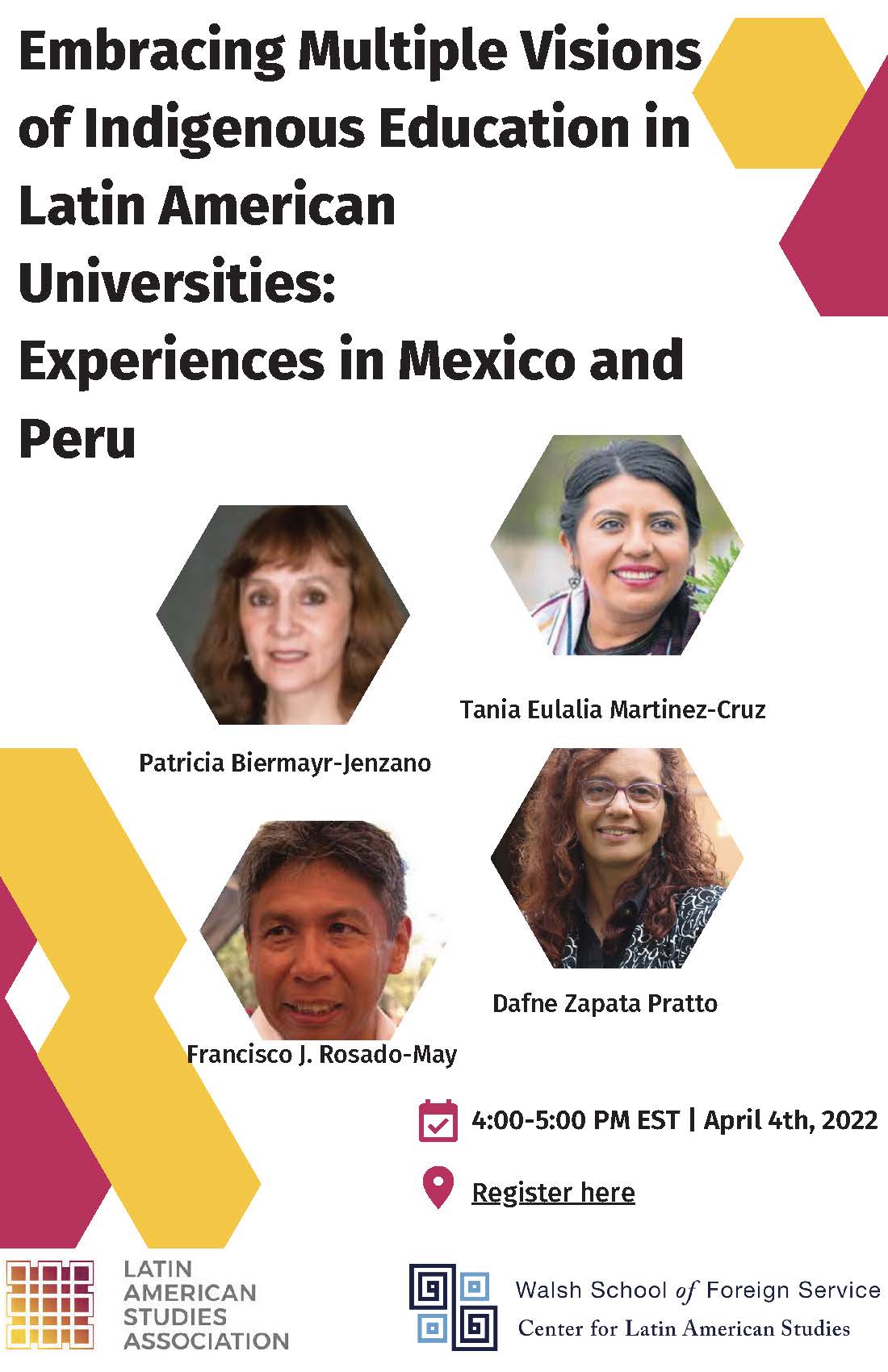
How has indigenous education been carried out in Latin America universities? What challenges and opportunities have been observed as increasing numbers of indigenous students enter the college student body, and how have indigenous insights been incorporated into traditional curricula? What leads to student success, and where is further growth needed? This webinar brings together scholars and practitioners from trail-blazing universities in Mexico and Peru and experts on indigeneity, gender, and identity in the classroom.
Panelists:
Patricia Biermayr-Jenzano, Georgetown University
Tania Eulalia Martinez-Cruz, Free University of Brussels and Oaxaca, Mexico
Francisco Rosado-May, Universidad Intercultural Maya de Quintana Roo, Mexico
Dafne Aida Zapata Pratto, Universidad Antonio Ruiz de Montoya, Lima, Peru
Panelist Bios:
Tania Eulalia Martinez-Cruz is an Ëyuujk Indigenous woman from Mexico and an interdisciplinary researcher. Currently, she is a consultant for the Indigenous Peoples Unit at FAO, and she is an associate researcher at the Free University of Brussels that does work on milpa/maize systems in Oaxaca, Mexico. She has worked in international development for more than 10 years. She does advocacy work on the role of Indigenous knowledge as key to the bioculturality of Indigenous Peoples´ and to solve global challenges. She also collaborates with different initiatives to promote Indigenous Women's access to education.
Francisco J. Rosado-May, full professor at the Universidad Intercultural Maya de Quintana Roo, is an agroecologist graduated at the University of California, Santa Cruz, with over 35 years of experience in research, higher education and outreaching in Mexico and other countries including the Americas, Europe, Africa and Southeast Asia. Francisco’s research field and academic training focuses on indigenous food systems, agroecology and indigenous education, aiming at developing concepts and methods towards intercultural/biocultural development by understanding the epistemology of indigenous knowledge, with emphasis on the Yucatec Maya, his own ethnicity. His experience in higher education includes appointment as President of Universidad de Quintana Roo and Founding President of Universidad Intercultural Maya de Quintana Roo, both in Mexico. Francisco’s academic publications are available at Research Gate and Google Scholar.
Dafne Zapata Pratto is the Director of Campus Ministry and Director of the Institute for Protection of Minors and Vulnerable Persons at the Universidad Antonio Ruiz de Montoya in Lima, Peru. She has earned a Masters degree in Psychology from the Universidad Feminina del Sagrado Corazón and a Licentiate degree in Psychology from the Universidad Nacional Mayor de San Marcos.

 Center for Latin American and Latinx Studies
Center for Latin American and Latinx Studies